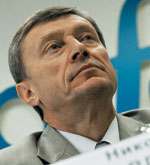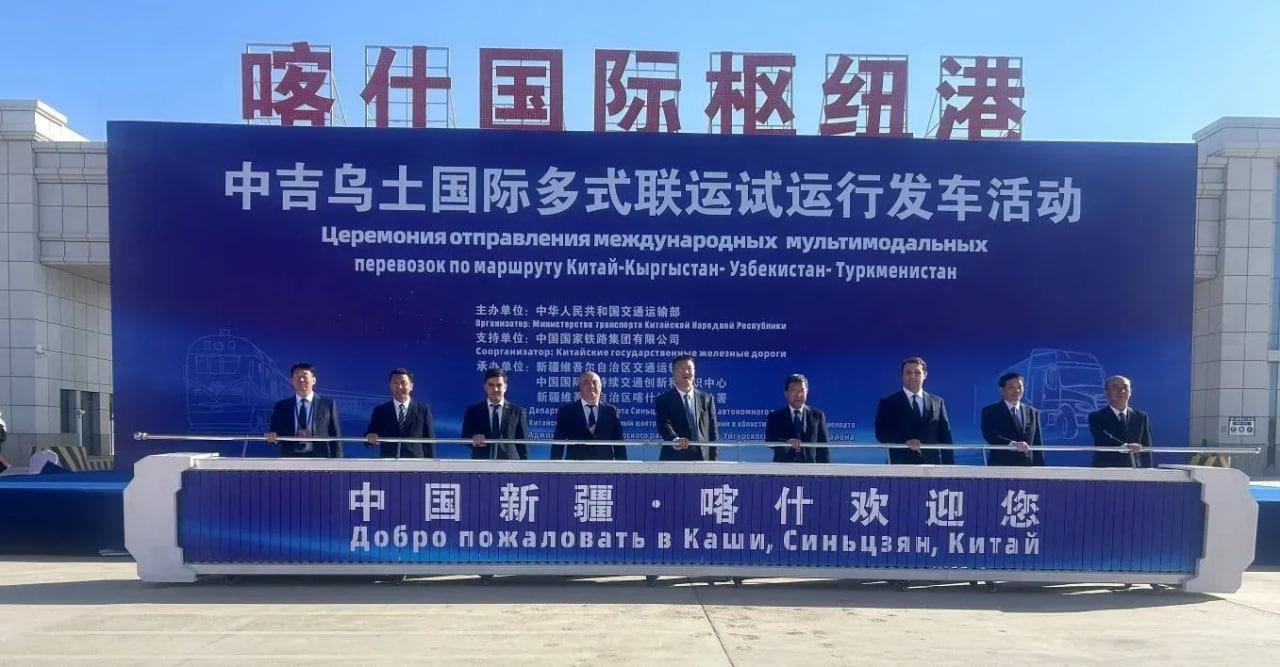
RUSSIA STUDIES OSH FOR POSSIBLE NEW MILITARY BASE IN KYRGYZSTAN
RUSSIA STUDIES OSH FOR POSSIBLE NEW MILITARY BASE IN KYRGYZSTAN
Russia is seriously contemplating the possibility of increasing its military presence in Kyrgyzstan, largely in response to the Kyrgyz revolution in March and the recent unrest in Uzbekistan. Despite senior individuals with strong influence within the Kremlin alluding to Osh as the location of a future Russian base, reflecting Russian concerns about the instability of the Fergana Valley, officials have strenuously denied that such an agreement has been reached.
Russia could send as many as 1,000 troops to serve in Osh under the auspices of the Collective Security Treaty Organization (CSTO) or the Shanghai Cooperation Organization (SCO). Reports suggest that Acting President Kurmanbek Bakiyev is open the idea of an additional Russian base, while a recent visit to Kyrgyzstan by Andrei Kokoshin, Chairman of the Russian State Duma’s CIS Affairs Committee, resulted in members of Kokoshin’s delegation suggesting that officials on both sides were considering the prospect of expanding Russia’s military presence in the country. It is interesting, however, to note that the same individuals said that nothing would be announced until talks on the issue are concluded (Interfax, May 25; Polit.ru, May 30).
That attitude may help explain why so many other Kyrgyz and Russian officials are busily denying that such plans are under examination. On May 31 Roza Otunbayeva, acting Kyrgyz foreign minister, stated that creating more military bases in Kyrgyzstan “has not been looked at or discussed at any level.” She equally dismissed media reports that China is also interested in offering to deploy troops in Kyrgyzstan, falling back on statements familiar from the old regime that no one in the Kyrgyz government seeks to facilitate the country becoming home to a collection of foreign military bases (Itar-Tass, May 31). But the formation of a new base in the country under the aegis of the SCO is certainly a realistic option, though the entry of Chinese troops may complicate still further the dynamics of Kyrgyzstan’s emerging post-Akayev foreign policy. A contribution to an SCO security body operating within the Fergana Valley might allow Chinese participation without the controversy of China sending troops abroad.
Nikolai Bordyuzha, secretary-general of the CSTO, has also issued similar disclaimers that the two countries are currently reviewing their existing arrangements. He explained, “Should the need arise to create such a military base, the presidents of the Collective Security Treaty Organization’s member nations would consider it. But my opinion is that the situation in the region is not so tense as to require any additional use of military force by the Collective Security Treaty Organization.” During talks in Bishkek on May 31 he told Felix Kulov, Kyrgyz acting first deputy prime minister that he does not see the need to deploy another CSTO military base in Kyrgyzstan. Bordyuzha was apparently assured that no official request has yet been made by Bishkek for Moscow to send troops to Osh (Akipress, May 30; Interfax, May 30, 31). What seems clear is that Bordyuzha is anxious that these matters be dealt with through the correct channels, ultimately at the presidential level among CSTO leaders. The wording of his apparently strenuous denial of Russian planners pondering a new base in Central Asia may in fact relate to the imprecise nature of the phrase “military base.” It may be promoted as an anti-terrorist center or counter-narcotics-trafficking body, depending on the priorities of the interested parties. Also, its relationship with the CSTO Collective Rapid Reaction Forces would need to be worked out clearly.
There is little doubt that Russian and Kyrgyz security planners are looking into the details surrounding the implications of expanding Russia’s military presence. In fact, the pattern is following a similar one already witnessed in Russia’s decision to deploy elements of its air force to Kant in 2002; reacting to external events, protecting Russia’s security interests in Kyrgyzstan, talking up the nature of potential political instability and the threat from terrorists. The difference lies this time in the public relations angle, since Moscow has to avoid any accusation of increased rivalry between the United States and Russia in the region, or in merely attempting to further militarize a difficult region. Here Kremlin officials will be keen to present the possible Russian base as one offered and run in the spirit of the CSTO or the SCO. In other words, Russia has learned from its own experience in Central Asia that bilateral efforts alone cannot engender improved security: the base at Osh has to be presented as part of a multilateral effort to achieve this goal—with the added bargain that it bypasses Western security assistance.
The reaction in practical terms from both Russia and China to the events in Uzbekistan in May have been slow and calculated. Each desperately wants Central Asia to stabilize, but also wishes to promote the multilateral options for doing so through either the CSTO or SCO. This is a complicating factor in the process of working out the details and tasking of any increased Russian military presence in Kyrgyzstan. But Moscow will try to eschew handling the sensitive issue as it did in the case of its base at Kant, necessitating a great deal careful planning and discussion with Kyrgyz officials; rumors will abound until every detail is finalized.


